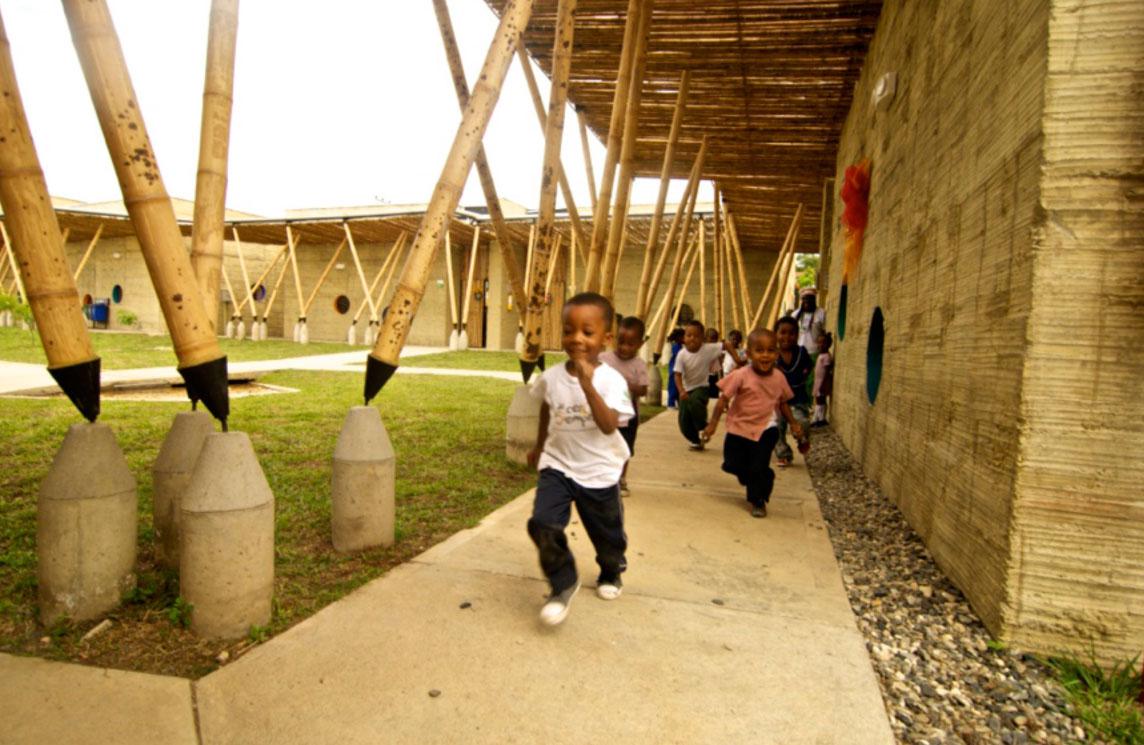Indigenous people in rural areas of Latin America face significant gaps in access to energy, water and sanitation services, transportation, health, and education services, among others. In twelve countries in our region:
- The access of indigenous peoples to sanitation services is 18% lower than that of non-indigenous peoples.
- 41% of rural indigenous people do not have access to electricity.
- 35% of rural indigenous households are overcrowded.
How Can We Build Solutions?
Designing and building infrastructure through conventional solutions is not enough to respond to these gaps and address the needs of diverse populations. We need differentiated public policies, which incorporate specific solutions that respond to the realities and aspirations of the indigenous people and territory in question.
When projects in indigenous communities do not consider local realities, they develop many weaknesses. The report “Working with Indigenous Peoples in Rural Water and Sanitation: Recommendations for an Intercultural Approach” by the Stockholm International Water Institute (SIWI), for example, notes that the lack of adaptation of water and sanitation projects to the local context of indigenous and ethnic minority populations has been a contributing factor to project failure. In turn, it highlights the importance of incorporating traditional knowledge, culture, and governance practices to improve the sustainability and effectiveness of projects in indigenous communities.
In this context, ethno-engineering can play a very relevant role in proposing equitable, sustainable, and environmentally sound development solutions, based on the concept of “good living” (“el buen vivir” in Spanish) of indigenous peoples.
What is Ethno-engineering?
Ethno-engineering is a discipline that values indigenous traditional knowledge as a source of inspiration for the implementation of environmentally sustainable engineering practices. It is a methodological proposal on how to adapt infrastructure and services to local problems and potentialities. This is achieved by taking the local ethnic identity as a starting point and using methodical and comprehensive participatory processes.
Infrastructure projects are adapted in a participatory manner and implemented through community agreements.
Three Approaches that Guide Ethno-engineering Processes:
1. Social Engraving: Collective appropriation of the project
Participation is a guiding principle at all stages of an infrastructure project that includes ethno-engineering. Horizontal collaborations promote reflection, discussion, and agreement. This is done through co-learning, co-teaching, and co-creation between community and non-community actors throughout the project cycle. Additionally, the mechanisms of governance specific to indigenous peoples are incorporated into participatory processes to advance a sense of ownership, appropriation, maintenance, and long-term sustainability of the works.

2. Cultural Value: Recovery and revaluation of local heritage
Ethno-engineering captures the identity of the indigenous or ethnically diverse people who benefit from the governance, design, construction, and operation of infrastructure. This involves prioritizing local knowledge and skills. Thus, local culture – from its worldview to its construction culture – informs project dimensions. This includes morphology, construction inputs, adjustments to local climate, symbolism and own language, and essential services provided, among other aspects.

3. Environmental Conservation: Respect and sustainable use of local materials
Ethno-engineering prioritizes the use of local materials and the sustainable management of their sources in the territory. This involves in-depth research on the materials used and available in each region, as well as their physical and aesthetic characteristics. Also, how to ensure their sustainable use, both for construction and maintenance.

This proposal also seeks to understand how to inhabit the geography of the place, and the connections to the territory. It works to respect existing patterns of life (settlement forms, mobility, cultural land use) that exist, and contribute to sustainable living in the territory.
Do You Want to Learn More about Ethno-engineering?
Join our webinar, ETHNO-ENGINEERING – Best practices for its incorporation into health, education, and transportation projects, on May 9th at 2:00 pm ET.
You can also download the ethno-engineering guide by the IDB, available in Spanish. This guide seeks to implement ethno-engineering in infrastructure projects developed with and for indigenous peoples and other ethnically diverse populations in our region. It includes lessons learned, reflections and recommendations. We seek to introduce key concepts that allow teams to include ethnic-engineering in projects, from formulation and design to execution, operations, and maintenance.
*Blog cover photo by Ivan Dario Quiñones Sanchez, 2013.



Leave a Reply